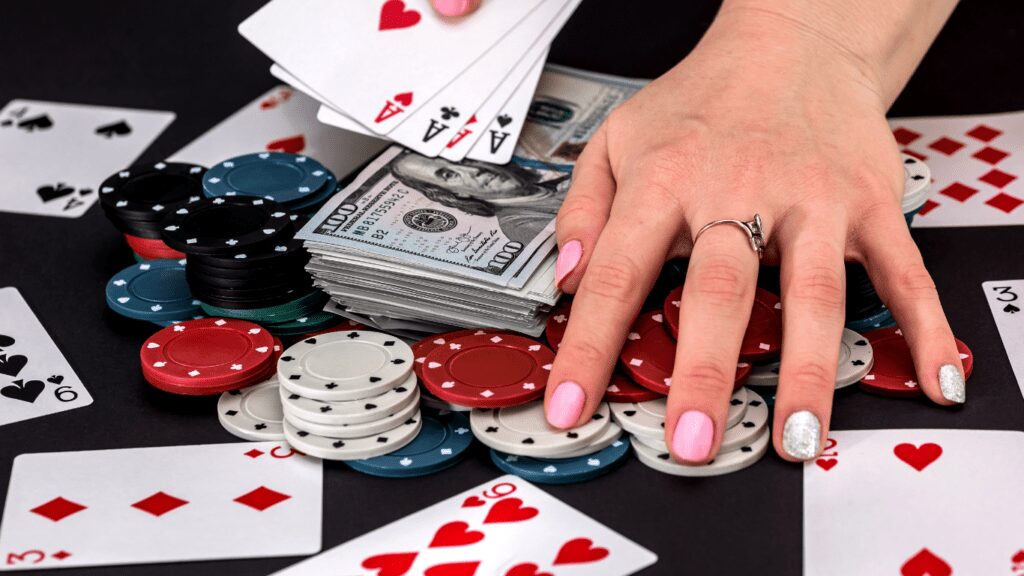Understanding The Psychology Of Spending
Spending habits are deeply influenced by the brain’s reaction to reward and risk. Recognizing how emotions and cognitive processes shape decisions helps in managing gambling patterns.
The Science Behind Spending Behavior
Spending behavior connects to the brain’s reward system, primarily involving dopamine release. Winning or the anticipation of winning during gambling activates this system, reinforcing the behavior.
Studies show that intermittent rewards, like those seen in gambling, create stronger reinforcement compared to consistent rewards. This explains why slot machines and similar games can feel addictive.
Loss aversion also plays a critical role. People tend to focus more on avoiding losses than acquiring equivalent gains. In gambling, this bias can lead to chasing losses, further entrenching spending habits. Cognitive biases, such as overconfidence and the illusion of control, compound the issue by fostering unrealistic expectations of success. Recognizing these mechanisms is essential to breaking unhealthy patterns.
Emotional Triggers And Impulsivity
- Emotions heavily influence spending decisions, especially in gambling contexts.
- Stress, boredom, and excitement often drive impulsive behavior. For instance, someone gambling to escape stress may initially feel relief, but the cycle typically exacerbates financial and emotional distress.
- Excitement also enhances impulsivity, making it harder to pause and evaluate the risks involved.
- Marketing techniques like bright visuals, sound effects, and instant rewards further amplify emotional responses, increasing impulsivity.
- Recognizing these triggers early can help in applying strategies like setting predefined limits or taking breaks to reduce unplanned spending.
The Allure Of Gambling
Gambling captivates many because it taps into deep psychological mechanisms tied to risk and reward. By understanding these mechanisms, I can better recognize how gambling habits develop.
Why Gambling Feels Addictive
Gambling feels addictive due to the brain’s dopamine response during moments of uncertainty. Dopamine surges not only when I win but also when I anticipate a possible win. These intermittent rewards, where wins occur unpredictably, condition my brain to seek repeated engagement. For example, slot machines use random payouts to reinforce this addictive pattern, keeping me drawn to the illusion of control despite purely chance-based outcomes.
Social interactions also heighten the addictive nature of gambling. Activities like poker games or sports betting create shared experiences that combine entertainment with emotional highs. This environment fosters a sense of belonging, making the habit harder to break.
The Role Of Rewards And Risks
Rewards and risks are central to the gambling experience, triggering emotional and cognitive responses. I feel a rush of excitement when taking risks, driven by the potential to win. In gambling, monetary rewards amplify this thrill, even if the probabilities are against me. Small wins further act as positive reinforcement, encouraging continued participation despite the overall losses.
The concept of “near misses” also plays a significant role. When an outcome feels close to winning, I perceive it as a sign to keep playing, fueling a desire to chase the reward. At the same time, risks like losing money evoke fear and tension, which paradoxically can motivate more gambling in an effort to recover. This cycle creates a strong psychological loop that keeps me engaged whether I’m winning or losing.
Recognizing Problematic Gambling Habits

Identifying problematic gambling habits is essential to address them effectively. While gambling can be harmless for some, it develops into an issue when behaviors become compulsive or harmful.
Warning Signs To Look For
Problematic gambling often presents clear warning signs. Frequent financial problems, such as borrowing money to cover gambling losses, indicate an unhealthy habit. Spending excessive time gambling, to the detriment of responsibilities or relationships, is a red flag. Emotional distress, including feelings of anxiety or guilt after gambling sessions, reflects escalating issues. Chasing losses, where someone bets more to recover losses, demonstrates a dangerous mindset. Secrecy around gambling activities, such as hiding the extent of time and money spent, signals an attempt to conceal potential problems.
Differentiating Between Casual And Problem Gambling
Casual gambling involves infrequent participation without significant impact on everyday life. It’s characterized by a controlled, recreational approach, such as occasional bets on sports. Problem gambling, on the other hand, disrupts routines, relationships, and finances. Cravings to gamble, even after significant losses, differentiate it from casual behavior. Emotional reliance, using gambling as an escape from stress or negative feelings, shifts the behavior toward a problematic spectrum. Recognizing these differences helps me to understand when gambling crosses from enjoyment to harm.
Strategies To Control Gambling Habits
Recognizing gambling habits is vital for implementing effective control strategies. These approaches focus on fostering financial mindfulness and accessing support resources.
Building Healthy Spending Habits
I commit to setting clear financial boundaries. This involves creating a budget, categorizing essential expenses, and allocating funds for entertainment without exceeding limits. For example, using a prepaid card for leisure spending ensures I stick to a predetermined amount.
I substitute gambling with non-monetary activities for entertainment. Engaging in hobbies like:
- exercising
- reading
- learning a new skill
provides a healthy alternative to spending. Substitution reduces the time and energy devoted to gambling behaviors.
I monitor spending behaviors consistently. Tracking app usage or maintaining a financial journal helps me identify areas of misuse or overspending. Recognizing these patterns allows me to refine my habits and make conscious financial decisions.
Seeking Professional Help And Support
I reach out to licensed therapists or counselors specializing in gambling addiction when self-regulation feels challenging. Professionals use evidence-based therapies like Cognitive Behavioral Therapy (CBT) to help modify harmful associations with gambling triggers.
I join support groups such as Gamblers Anonymous to connect with others facing similar challenges. These groups provide a nonjudgmental space for sharing experiences and strategies, fostering accountability, and building resilience.
I consider self-exclusion programs for additional safeguards. These programs enable me to limit access to gambling venues or platforms, effectively removing opportunities to participate impulsively.
















































































































































































































































































































































































































































































































































































































































































































































































































































































































































































































































































 As co-founder of CasinoMastermindx. Cecilla Pricetalker leads the vision and strategy behind the platform’s tech-focused content. With a deep understanding of casino innovation, software engineering, and iGaming trends, she ensures every piece reflects accuracy, innovation, and integrity. Cecilla’s leadership and technical insight make CasinoMastermindx.com a trusted source for forward-thinking gaming intelligence.
As co-founder of CasinoMastermindx. Cecilla Pricetalker leads the vision and strategy behind the platform’s tech-focused content. With a deep understanding of casino innovation, software engineering, and iGaming trends, she ensures every piece reflects accuracy, innovation, and integrity. Cecilla’s leadership and technical insight make CasinoMastermindx.com a trusted source for forward-thinking gaming intelligence.
